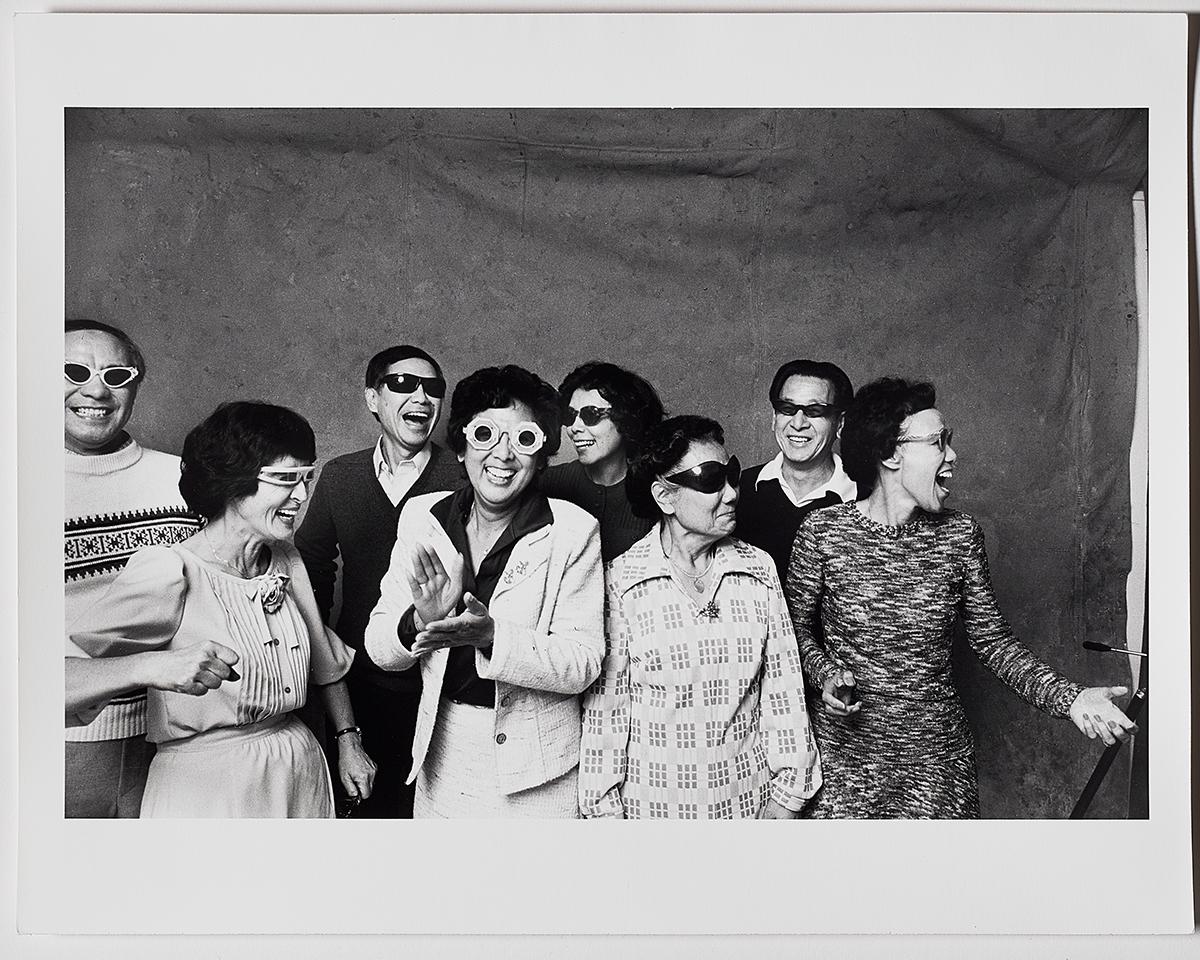Cantor Arts Center
328 Lomita Drive at Museum Way
Stanford, CA 94305-5060
Phone: 650-723-4177

Michael Jang (American, born in 1951), Aunts and Uncles, 1973. Gelatin silver print on fiber-based paper. Cantor Arts Center, Stanford University. William Alden Campbell and Martha Campbell Art Acquisition Fund, 2020.13.2
One of three inaugural exhibitions of the Asian American Art Initiative (AAAI), At Home/On Stage: Asian American Representation in Photography and Film, curated by Maggie Dethloff, assistant curator of photography and new media, explores how Asian American artists’ work participates in conversations around identity and representation. Featuring photographs, film, and video spanning the 20th century, the exhibition focuses on work made since the 1970s, the time period after the term “Asian American” was coined in 1968. Arising as part of constituent communities’ efforts towards self-definition, autonomy, coalition-building, and education concerning their long histories in the United States, the term speaks directly to the concepts of identity and representation in both political and socio-cultural terms.
At Home/On Stage is premised on the idea that photography, film, and video are key mediums in considering histories of representation. The mediums have been historically deployed both in the advancement of and in rebuttal to problematic or absent media depictions and as image-making tools used both by private individuals and for public consumption. The exhibition is organized thematically into two sections accordingly. “On Stage” responds to the lack of accurate, positive representation of Asian Americans in hegemonic American visual and performing art through Asian American artist portraits and conceptual projects re-appropriating found art historical and cinematic imagery. “At Home” responds to the same pernicious stereotypes in another way by showing Asian Americans in their private, family lives, which are both very “American” and deeply connected to Asian and Asian American culture.
“Although the two sections of the show may seem quite disparate,” Dethloff notes, “taken together, they remind one that identity is influenced, formed, and transformed through the intersection of one’s home life and public life—one’s family, community, and society—over time and in varying ways.”
The exhibition features primarily permanent collection artworks and celebrates several new acquisitions made collaboratively by Dethloff and Aleesa Alexander, Robert M. and Ruth L. Halperin Associate Curator of Modern and Contemporary Art and co-director of the AAAI. “Over half of the works in the exhibition are new acquisitions,” Dethloff remarks. “It’s been a privilege to collaborate with Aleesa on these acquisitions, which also advance my own collecting goals of diversifying the Cantor’s photography collection and responsibly building a collection of new media. I’m excited for future opportunities to continue to add influential Asian American photographers, filmmakers, video and digital artists to our collection.”
The exhibition also features select loans, including material from Stanford Libraries Department of Special Collections. Including the work of professional and amateur Asian American photographers working in earlier periods, these loans allow the exhibition to better demonstrate the role photography has historically played in documenting Asian American life, arts, and culture and in shaping Asian American individual, family, and community identity. In the works on display from the collections of the Cantor as well as those from Special Collections, there will be a strong showing of work by Asian American artists working on the West Coast, in California, and the Bay Area, including Ricardo Ocreto Alvarado, Patty Chang, Michael Jang, Reagan Louie, May’s Photo Studio, Irene Poon, Miljohn Ruperto, Stephanie Syjuco, Gloria Wong, Chao-Chen Yang, and Lai Yong. Several other Asian American art world figures, visual artists, and practitioners of the performing arts are represented in the works on view, including but not limited to sculptor Isamu Noguchi, actress Isabel Rosario Cooper, actress and dancer Ota Hisa (stage name Hanako), art collector Kimiko Powers, painter Miné Okubo, and designer and sculptor Wah Ming Chang.

Join artists Reagan Louie and Livien Yin in a discussion about their artistic practices and artworks responding to and building on archives of the Chinese diaspora. Works by each artist have been gifted or promised to the Cantor Arts Center in support of the Asian American Art Initiative (AAAI). Yin’s work is on view in the exhibition East of the Pacific: Making Histories of Asian American Art (through Feb. 12, 2023) and Louie’s in At Home/On Stage: Asian American Representation in Photography and Film (through Jan. 15, 2023). Co-director of the AAAI and curator of East of the Pacific, Aleesa Pitchamarn Alexander, PhD, and curator of At Home/On Stage, Maggie Dethloff, PhD, will moderate this virtual discussion. A recording will be made available at a later date.